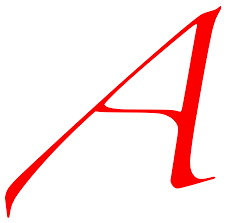Friday night, at the talk given by Richard Dawkins and D.J. Grothe at University of Southern California, there was a portion for audience member questions. One person, whom I believe said he was 14 years old and from the SoCal area, asked how he could come out as an atheist. Dr. Dawkins paused and appeared to be in thought on how to respond to this in the short time and limited information he knew about him. He asked the young man if his parents knew about his atheism and were okay with it, to which he said yes. Dawkins said that it was a good start for him and that he was in a much better position to live life out as a nonbeliever compared to many others.
I agree with Dawkins’ assessment, as the advice for one person would be much different from someone in a different situation, whether it be living in a religious part of the country or being part of a family where this sort of thing could result in a nonbeliever being shunned.
I have some additional thoughts on this as well. You can make a big announcement if you want, but since not everyone feels comfortable doing this, here are some things that worked for me, which I would mention to a young person in a similar situation to his.
Mention it in the classroom. You are at a time when discussions are likely a regular part of certain classes. If a teacher mentions something about how we are a nation of many religions, you might raise your hand and add that we’re also a nation of the nonreligious, including yourself. In Philosophy class, if you are learning about many of the great thinkers but the syllabus doesn’t include any free thinkers, you might find a way to mention those like Bertrand Russell or Daniel Dennett. These are just examples. Feel free to do it in a way that best suits you.
Disclose it to your peers. This doesn’t have to be a special phone call or announcement, it can just be mentioned when it comes up naturally in conversation. When a classmate asks in December which holiday you celebrate, you could reply with something like, “I celebrate Christmas, but it’s for cultural reasons, as I don’t believe in a god,” “My family celebrates Hanukah, but I am a secular Jew,” “I celebrate the Winter Solstice, since that’s the reason for the season,” “I don’t celebrate any religious holidays since I do not believe in any of them,” or whatever answer fits your customs and beliefs. Your answer may end up leading to a bigger conversation and get more in-depth. If they’re curious about what you do or don’t celebrate and brought it up to you in the first place, they may be interested to learn more about you.
Share your atheism on social networking sites. If you are allowed to be online and have profiles, you can mention your views on your bios. On facebook, you can choose atheism, secular humanism, and the like as your religious view.
Display symbols related to atheism. There’s the option of incorporating atheist symbols or the logos of organizations related to that. Not everyone wants to do this, but if you find it appealing, you could wear a necklace, put badges on your backpack, wear a shirt related to free thought, put stickers on your binders, or display magnets on your locker. Something as simple as wearing the Scarlet A symbol on a shirt or necklace can start a discussion. Those who know what it means will know you’re an atheist. Those who don’t may end up asking what the A stands for. There’s also the Flying Spaghetti Monster, the atomic whirl, Invisible Pink Unicorn, and other symbols, as well as shirts that have messages and images. Wearing any of these can not only help you express yourself, but can also encourage others to come out as well.




You don’t have to do all of these or any of these. There’s no order of which to do first, it’s what you are comfortable with. The important thing to mention is that we all are in different situations, so only do what you feel is right. Do these when and if you feel ready. Don’t feel forced to come out and don’t force anyone else out. But know that when you do come out there is a community who will be there for you. There are organizations in SoCal like Center for Inquiry and Atheists United and there is an even greater online community of atheists around the world. The young man on Friday night took a big step by mentioning his atheism and I hope that the positive response he got from Dawkins and fellow audience members can be the beginning of him being able to live openly.
The Richard Dawkins Foundation for Reason and Science has the Out Campaign website, which is a good resource for additional information.
This piece was reposted on the Richard Dawkins Foundation for Reason & Science.
